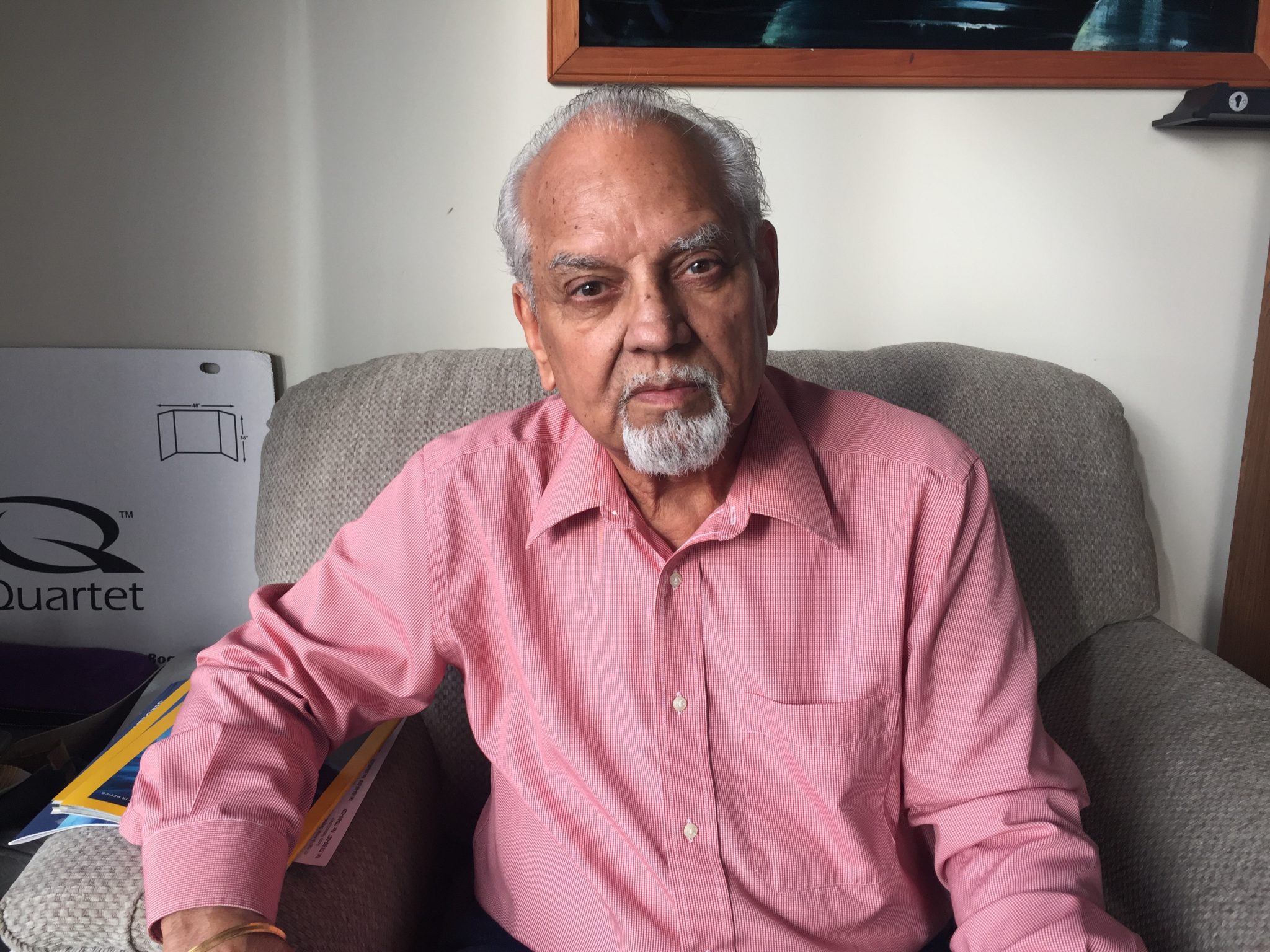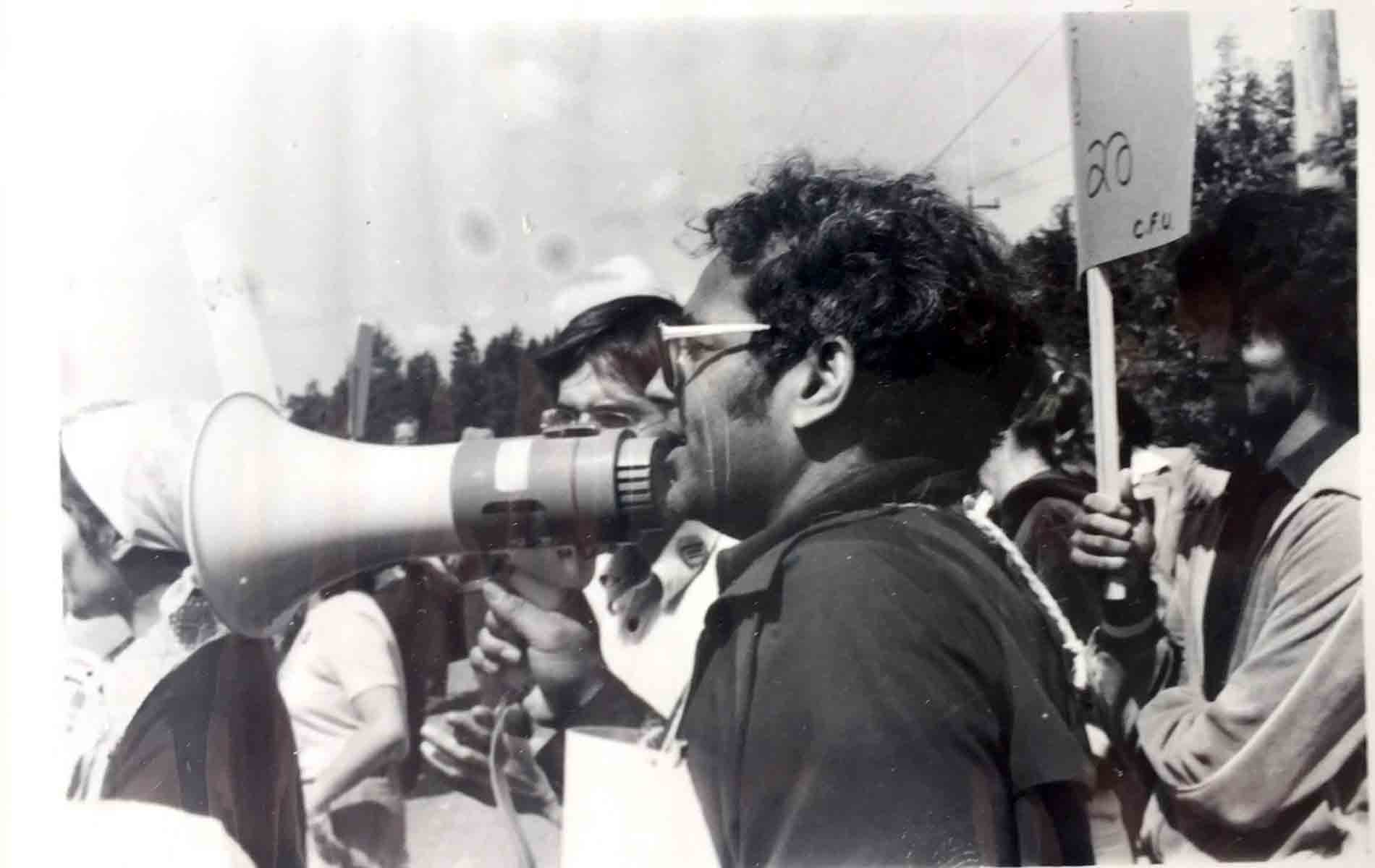Charanpal Gill
Date of Birth:
1936
Birthplace:
Hong Kong
Current City:
Surrey, BC
Charanpal Gill was born in Hong Kong in June, 1936. In 1937, he and his family moved back to India (their family’s original homeland) due to war in Hong Kong. His father passed away when he was only two years old and so it was his mother who raised him alone, ensuring he received a good educated and so much more. In New Delhi, after finishing his MA, Charanpal began working for the Punjabi department in his University. When Charanpal was 21 years old, he went back to Hong Kong to see what all had changed and when he came back, his mother had arranged for his marriage. Charanpal soon after earned a banking job in Hong Kong and after three years of hard work, he soon became well settled. After living in Hong Kong for six years, his sister told him to move to Vancouver because of pending new regulations that were expected to come to China.
When he moved to Vancouver in 1967, Sikhs at that time were facing incredible forms of racism and discrimination. Because of this racism, Charanpal was forced to cut his hair because no one would hire him and he remembers hating the way he looked without his turban. Charanpal eventually found a job at a mill in William’s Lake, an injustice to the incredible knowledge and education he had earned while in Delhi. Some days his feet would swell up to the point where he couldn’t take off his shoes. One day, he slipped on ice and broke his wrist, that’s when he decided to stop working at the mill.
Charanpal then came across a program that helped orphans find a place to live in Northern, BC. The director of this program asked Charanpal to meet him in Prince George. When Charanpal went to Prince George, he was offered a job as a social worker. After completing a one-month training, he went to Prince Rupert to being his new job. After working in Prince Rupert for five years, Charanpal decided that he wanted to earn his full Bachelor’s degree in social work. The company agreed and transferred him to Burnaby. It was during this time, in 1980, that Charanpal became particularly attuned to the intense racism everywhere he went. Everyone that wasn’t a white Christian lived in fear because the KKK had been terrorizing them. They would spit on the faces of Punjabi women and set fire to countless houses. They even killed a Punjabi man in the park. Due to this extreme levels of terrorism, the community decided to form a union against them. However, once the union was made, no one was brave enough to become the president of it because of the fear of being shot.
Regardless, Charanpal persevered, founding the Canadian Farmworkers Union in 1980 and founding the British Columbia Organization to Fight Racism (BCOFR) in the same year. During this time, Charanpal never succumbed to fear or pressure despite the many threats he faced on both these fronts.
As a social worker, Charanpal worked with many families. He noticed for example, that there was a lot of conflict between Punjabi parents and their children, reflective of the intergenerational conflicts bound to happen within a diaspora group. Many couples committed suicide because they wanted to get married but their parents didn’t approve. This is when Charanpal decided that the Punjabi community needed its own, specialized, culturally specific counselling services. The community didn’t have its own radio station but they had one newspaper where they began to advertise this service. In the beginning, not many people went for the counselling sessions however once the community grew, it became successful. This service eventually became known as the Progressive Intercultural Community Services, founded in 1987. They were also the first to have the anniversary of the Komagata Maru, which very few people knew about that back then. Charanpal also published a book called Race Relations to Today. After receiving a grant, the PICS orgaization expandded as he was able to hire a manager and he became the executive director. As Charanpal looks back, he is amazed at how he worked for 12- 14 hours straight in order to amplify the work of PICS and to grow the organization.
When the NDP came into power, Charanpal bought his first property to build a house. They started building their house in 1999 and was completed in 2001. Charanpal and his team, built many houses for people who were in need. For example, they built a house for women facing domestic violence. They also built another house for elders who had no place to live. Despite the backlash from his own community, he and his organization kept going forward and helping the community selflessly. Unfortunately, Charanpal’s wife fell and hit her head, causing her to get dementia. Due to this, Charanpal resigned from PICS and started taking care of his wife.
Since Charanpal was always working, he wasn’t able to give his family much time. After retirement, Charanpal devoted his time to take care of himself, his wife and his household. He believes that there is more to life than the amount of money you make. He hopes that people will someday understand this.














